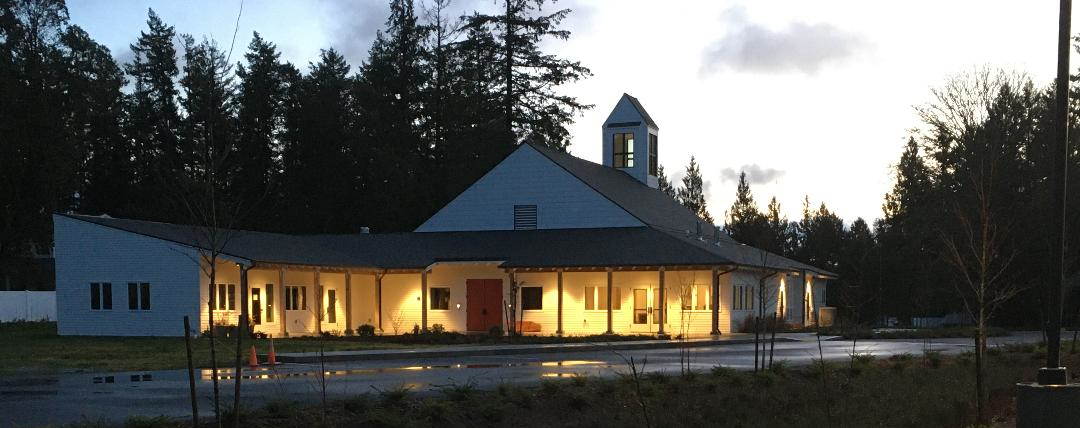i’ve heard good things about the music and liturgy at Christ Episcopal Church in Tacoma, so I decided to attend there for the last Sunday of my sabbatical.
I arrived about fifteen minutes early, but the choir was still practicing, so I waited in the narthex with some nicely dressed parishioners.
The building is unique. It’s composed of a towering cement shell that wraps around the worship space in a sweeping curve. In the rear of the nave is a set of towering organ pipes, with the organist and the choir beneath them. Christ Church is well known for its excellent music and rightly so.
The organist is an elegant retired musician with a fine command of the instrument. The liturgical space is so resonant with the curving cement walls that the organ and choir easily dominate the service. Although the congregation sang well, the swell of the choir’s voices behind us strongly reinforced the singing and filled the space.
There was a good deal of music in the service, some of it composed by the music staff of the parish. As a singer, I appreciated the music because it was well done and it added to the depth and meaning of the scripture texts.
On the other hand, the visual experience is somewhat jarring. The raw cement walls of the nave are not easy to look at for an hour.
The altar party consisted of the tall woman priest (the celebrant), a male priest (the preacher), and four adult male assistants. They showed great dignity and reverence in their movements and added a great deal to the service.
In some resonant spaces, it’s hard to hear the spoken word clearly, but the sound system here was excellent, and those speaking could be clearly heard. The preacher, a retired professor of religion, spoke slowly and clearly so that his words were easily heard.
The sermon was crisp and well thought out, on a difficult Gospel text. Jesus says that his followers must hate their families and carry the cross if they are to be his disciples. The preacher carefully explained the context of Jesus’ words. He said that in Jesus’ time, your family was your only social support group and your means of survival. To follow Jesus meant to give up the security of your family. On the other hand, it was a means of liberation from suffocating family restrictions, but there was a risk, the risk of going into an unknown future.
He then told the story of Dietrich Bonhoeffer, a German Lutheran Pastor who resisted Hitler’s rise to power in the 1930s and 40s. The preacher said that Bonhoeffer’s friends advised him to flee abroad but he made the decision to stay and resist. He was eventually jailed and executed.
The preacher described how Hitler promised to restore Germany’s greatness after the humiliation of WWI; his racial hatred of Jews; and his disregard of anyone who got in his way. The preacher never mentioned the current administration, but the parallels were clear.
He concluded by saying, “ What is Christ asking us to do, when racial hatred is increasing, the homeless are brushed aside, some people can barely make a living, the environment is in crisis, and some are suffering so a wall can be built on our southern border?”
The pews were about half full. I would guess there were 80-100 people present. Most of the congregation were elderly, but a few families came in when it was time for Communion.
The organist played a lively postlude at the end of the service. Everyone stayed to listen to it, and when I left, I was whistling the melody.
I went into the parish hall for coffee afterward. There was a nice buzz, and I spoke with a woman I happen to know.
If I lived near this church, I would gladly become a member. The excellent music and the resonant atmosphere, the great care the altar party showed, and the dignity of the liturgy would do it for me.
